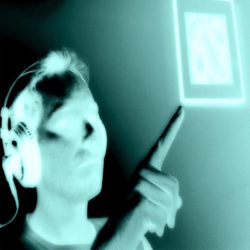“Do you suffer from sleeplessness, anxious feelings, obsessive worrying about the future that makes it hard to function? If you find yourself saying Yes, than you may be suffering from generalized anxiety disorder and a chemical imbalance may be to blame.” — Paxil commercial
I mean no disrespect to any of you who have or are suffering from anxiety, depression, or any other mental health problem, but the notion that the so-called mental illnesses we see all around (and within) us are predominantly upper-right quadrant pathologies (i.e. brain disorders) is, to my mind, a striking example of ignorance and non-integral thinking. I say this with genuine compassion, having spent the last ten years of my life working with people diagnosed with mental illnesses.
Drug companies drive much of the current research in psychiatry these days, and the medical establishment (i.e. the people that prescribe Paxil) has produced an abundance of evidence to support their viewpoint: the brain scans, the analysis of neurotransmitter levels, etc. That the entire culture is unbalanced chemically is not the issue–this is, in fact, an obvious state of affairs, which the “evidence” nicely illustrates. What really frosts my balls is the cleverly marketed misunderstanding that an imbalance in our chemical structure necessarily indicates a chemical intervention, and furthermore, is a state of affairs which relieves us of the responsibility for our own state of being. If we took a brain scan and did a chemical analysis of a person who just stuck his head in an elephant’s asshole, we would surely note, when we compare the results to a scan and analysis of the same person a week later (head still in ass), many differences. The long term exposure to the elevated temperature of the elephant’s bunghole, along with the lack of breathable air, would undoubtedly have profound physiological effects. The Paxil pushers of the world would like us to believe that our subject’s chemical imbalance should be “treated” by giving him some pill (it would have to come in suppository form of course, as our subject’s head, and therefore mouth, is unavailable as a medication route) that will directly act on his physiological structure in a way that facilitates a change toward the closest possible approximation of his initial state of relative chemical balance. Well, that’s one approach I guess. The common sense alternative of simply having the subject remove his head from the elephant’s ass would seem a little simpler, and would undoubtedly achieve more satisfactory results. Clearly, pulling head from ass is the more appropriate response in this situation, but imagine if every time we tried to point this out we were encouraged to ignore the fact that the guy’s head was in the elephant’s ass, that every time we even glanced in the direction of the elephant’s ass, our attention was redirected to the brain scan and physiological data. Well, you get the point. Anything can be considered in terms of its chemical properties and physical structure, and any change in subjective experience has a correlative change on an objective, observable level. It simply does not follow that depression, anxiety, or any other mental illness is “caused by” a chemical imbalance, or should necessarily be treated by a chemical intervention. If a tiger were to walk onto my front porch, my physiology would change measurably, but I would consider it insane for someone to suggest that my resultant anxiety was “caused by” the physiological changes or that I should swallow some paxil. I am thankful that many of the folks I work with, such as those tormented by voices in their head or those depressed to the point of attempted suicide, find relief in medication. In fact, I’m all for the use of chemicals for any and all psychological problems, even having a few beers after a tough day at work. Anything that helps is good, so long as you understand (as much as possible) what you’re doing and why you’re doing it. The person who takes the paxil and stays on the front porch with the tiger might get eaten alive. The problems we face in life are complicated beasts, and they cannot be understood or effectively addressed with anything less than an integral approach.
But the paxil pushers of the world are only telling us what we want to hear. We want to keep our gaze fixed on those brainscans and hormone level print outs; we’re more than willing to spend however much it costs for those little pink pills.
It’s such a small price to pay for the warmth and security of that big, pillowy ass. It’s as cozy as mama’s womb, by golly, and once you get used to the smell, you don’t even realize where your head’s buried.

